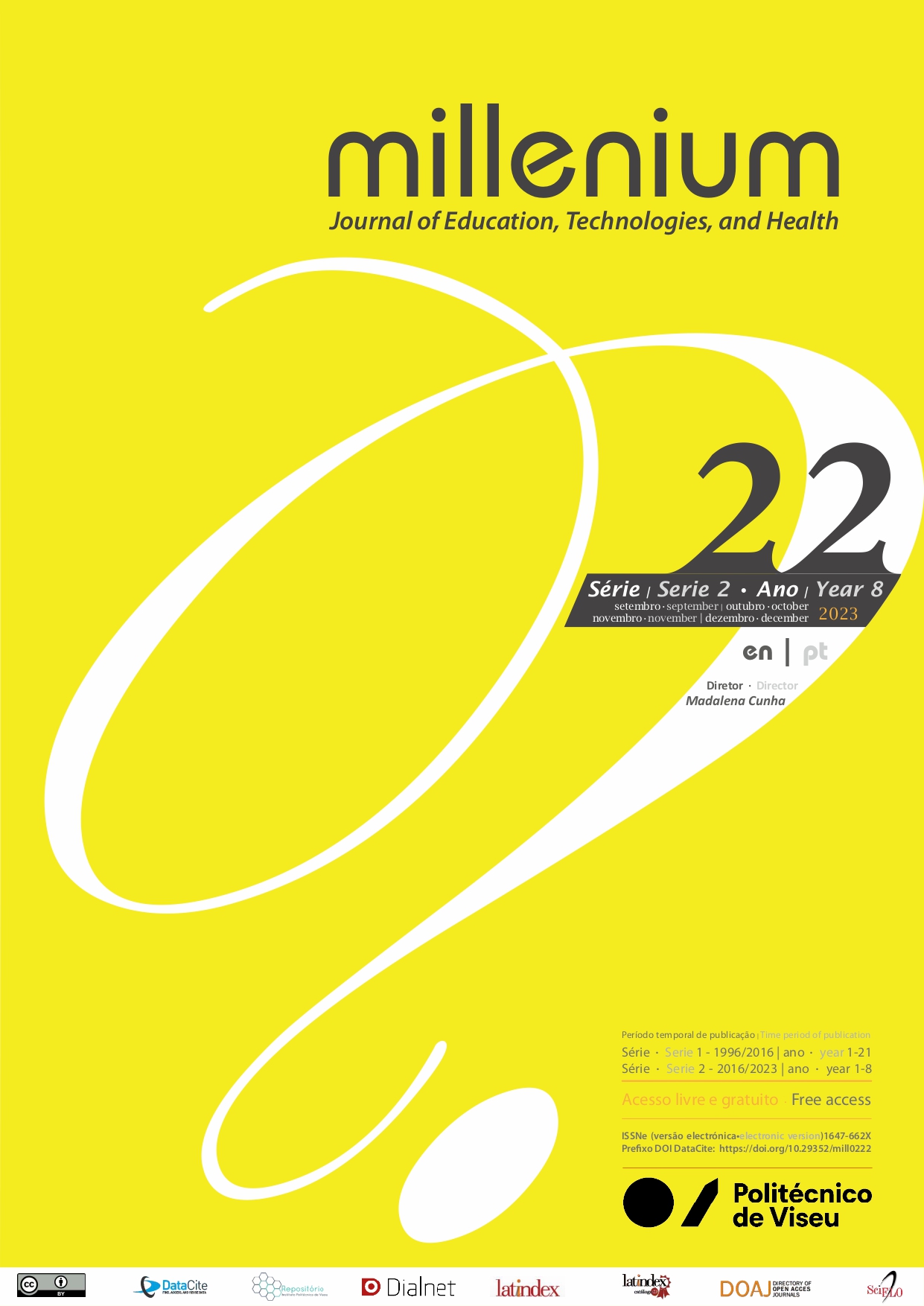Development of sustainable collaborative online international learning (coil) in nurse education: a qualitative study
DOI:
https://doi.org/10.29352/mill0222.29939Keywords:
international educational exchange; cultural competency; students; nursingAbstract
Introduction: In “Collaborative Online International Learning” (COIL) teachers/facilitators and students are expected to develop international awareness through dialogue with international peers. COIL´s potential for the development of global perspectives on professional themes without traveling abroad is unique.
Objective: To identify obstacles and success criteria experienced during the development of a COIL module in nurse education.
Methods: A qualitative study was developed with participants of a COIL module. Interviews with 11 students and 8 facilitators were included. The content analysis was performed on the data as a whole.
Results: Four common categories emerged across students´ and teachers´ perspectives: positive experience; experienced difficulties; skills developed; and COIL suggestions. Additionally, opportunities provided by COIL were specific for teachers, and strategies used for the difficulties experienced were specific for students.
Conclusion: COIL should be carefully planned and regulated like all programming of curricular activities. Different curricula, time zones, and schedules across education programs in different countries must be considered.
Downloads
References
Bardin, L. (2011). Content analysis (5th ed.). Edicoes, 70.
Beelen, J. (2017). The missing link in internationalisation: developing the skills of lecturers. ZFHE, 12(4), 133-150.
Beelen, J., & Jones, E. (2015). Redefining internationalization at home. In A. Curai, L. Matei, R. Pricopie, J. Salmi, & P. Scott (Eds.), The European higher education area: Between critical reflections and future policies (pp. 69-72). Springer. http://link.springer.com/book/10.1007/978-3-319-20877-0
Carlson, E., Stenberg, M., Chan, B., Ho, S., Lai, T., Wong, A., & Chan, E. A. (2017). Nursing as universal and recognisable: Nursing students' perceptions of learning outcomes from intercultural peer learning webinars: A qualitative study. Nurse Educ Today, 57, 54-59. https://doi.org/10.1016/j.nedt.2017.07.006
Carlson, E., Stenberg, M., Lai, T., Reisenhofer, S., Chan, B., & Cruz, E. (2019). Nursing students' perceptions of peer learning through cross-cultural student-led webinars: A qualitative study. J Adv Nurs, 75(7), 1518-1526. https://doi.org/10.1111/jan.13983
Chan, E. A., & Nyback, M. H. (2015). A virtual caravan--A metaphor for home-internationalization through social media: A qualitative content analysis. Nurse Educ Today, 35(6), 828-832. https://doi.org/10.1016/j.nedt.2015.01.024
Guest, G., Namey, E., & Chen, M. (2020). A simple method to assess and report thematic saturation in qualitative research. PLoS One, 15(5), e0232076. https://doi.org/10.1371/journal.pone.0232076
Guimarães, F. F., & Finardi, K. R. (2021). Global citizenship education (GCE) in internationalisation: COIL as alternative Thirdspace. Globalisation, Societies and Education, 19(5), 641-657. https://doi.org/10.1080/14767724.2021.1875808
Hackett, S., Janssen, J., Beach, P., Perreault, M., Beelen, J., & van Tartwijk, J. (2023). The effectiveness of Collaborative Online International Learning (COIL) on intercultural competence development in higher education. International Journal of Educational Technology in Higher Education, 20(1), 5. https://doi.org/10.1186/s41239-022-00373-3
Hao, X., Peng, X., Ding, X., Qin, Y., Lv, M., Li, J., & Li, K. (2022). Application of digital education in undergraduate nursing and medical interns during the COVID-19 pandemic: A systematic review. Nurse Educ Today, 108, 105183. https://doi.org/10.1016/j.nedt.2021.105183
Jung, D., De Gagne, J. C., Choi, E., & Lee, K. (2022). An Online International Collaborative Learning Program During the COVID-19 Pandemic for Nursing Students: Mixed Methods Study. JMIR Med Educ, 8(1), e34171. https://doi.org/10.2196/34171
Lincoln, Y. S., & Guba, E. (1985). Naturalistic Inquiry (6 ed.). Sage.
O'Connor, S., Jolliffe, S., Stanmore, E., Renwick, L., Schmitt, T., & Booth, R. (2017). A mixed study systematic review of social media in nursing and midwifery education: Protocol. J Adv Nurs, 73(8), 1989-1996. https://doi.org/10.1111/jan.13310
Spadaro, K. C., Wolf, D., Wu, H., & Hunker, D. F. (2017). Preparing for an international student cohort: Making a global impact on nursing. Nurse Educ Today, 57, 88-94. https://doi.org/10.1016/j.nedt.2017.06.014
Tong, A., Sainsbury, P., & Craig, J. (2007). Consolidated criteria for reporting qualitative research (COREQ): a 32-item checklist for interviews and focus groups. Int J Qual Health Care, 19(6), 349-357. https://doi.org/10.1093/intqhc/mzm042
Vahed, A., & Rodriguez, K. (2021). Enriching students’ engaged learning experiences through the collaborative online international learning project. Innov. Educ. Teach. Int., 58(5), 596-605. https://doi.org/10.1080/14703297.2020.1792331
Wihlborg, M., Friberg, E. E., Rose, K. M., & Eastham, L. (2018). Facilitating learning through an international virtual collaborative practice: A case study. Nurse Educ Today, 61, 3-8. https://doi.org/10.1016/j.nedt.2017.10.007
Wimpenny, K., Beelen, J., Hindrix, K., King, V., & Sjoer, E. (2021). Curriculum internationalization and the ‘decolonizing academic’. Higher Education Research & Development, 1-16. https://doi.org/10.1080/07294360.2021.2014406
Wimpenny, K., Beelen, J., & King, V. (2020). Academic development to support the internationalization of the curriculum (IoC): a qualitative research synthesis. International Journal for Academic Development, 25(3), 218-231. https://doi.org/10.1080/1360144X.2019.1691559
Downloads
Published
How to Cite
Issue
Section
License
Copyright (c) 2023 Millenium - Journal of Education, Technologies, and Health

This work is licensed under a Creative Commons Attribution 4.0 International License.
Authors who submit proposals for this journal agree to the following terms:
a) Articles are published under the Licença Creative Commons (CC BY 4.0), in full open-access, without any cost or fees of any kind to the author or the reader;
b) The authors retain copyright and grant the journal right of first publication, allowing the free sharing of work, provided it is correctly attributed the authorship and initial publication in this journal;
c) The authors are permitted to take on additional contracts separately for non-exclusive distribution of the version of the work published in this journal (eg, post it to an institutional repository or as a book), with an acknowledgment of its initial publication in this journal;
d) Authors are permitted and encouraged to publish and distribute their work online (eg, in institutional repositories or on their website) as it can lead to productive exchanges, as well as increase the impact and citation of published work
Documents required for submission
Article template (Editable format)





